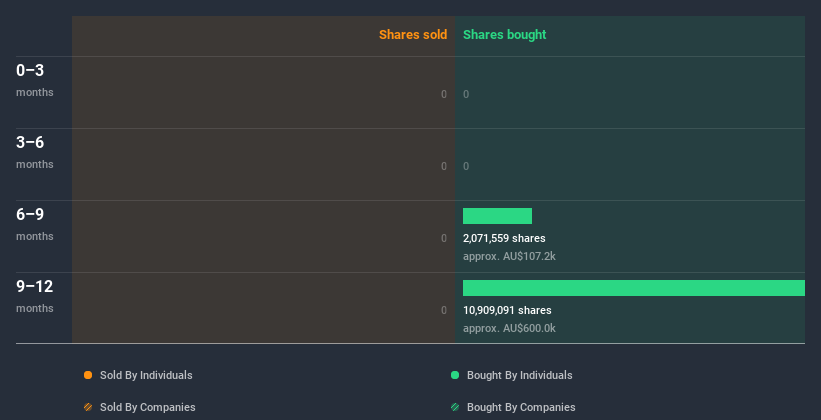Have Insiders Been Buying Po Valley Energy Limited (ASX:PVE) Shares?

It is not uncommon to see companies perform well in the years after insiders buy shares. On the other hand, we'd be remiss not to mention that insider sales have been known to precede tough periods for a business. So we'll take a look at whether insiders have been buying or selling shares in Po Valley Energy Limited (ASX:PVE).
What Is Insider Selling?
Most investors know that it is quite permissible for company leaders, such as directors of the board, to buy and sell stock in the company. However, such insiders must disclose their trading activities, and not trade on inside information.
We don't think shareholders should simply follow insider transactions. But logic dictates you should pay some attention to whether insiders are buying or selling shares. As Peter Lynch said, 'insiders might sell their shares for any number of reasons, but they buy them for only one: they think the price will rise'.
View our latest analysis for Po Valley Energy
The Last 12 Months Of Insider Transactions At Po Valley Energy
In the last twelve months, the biggest single purchase by an insider was when Non Executive Director Kevin Bailey bought AU$300k worth of shares at a price of AU$0.055 per share. That means that even when the share price was higher than AU$0.032 (the recent price), an insider wanted to purchase shares. Their view may have changed since then, but at least it shows they felt optimistic at the time. We always take careful note of the price insiders pay when purchasing shares. It is generally more encouraging if they paid above the current price, as it suggests they saw value, even at higher levels.
Po Valley Energy insiders may have bought shares in the last year, but they didn't sell any. The chart below shows insider transactions (by companies and individuals) over the last year. If you click on the chart, you can see all the individual transactions, including the share price, individual, and the date!
Po Valley Energy is not the only stock that insiders are buying. For those who like to find winning investments this free list of growing companies with recent insider purchasing, could be just the ticket.
Does Po Valley Energy Boast High Insider Ownership?
Another way to test the alignment between the leaders of a company and other shareholders is to look at how many shares they own. Usually, the higher the insider ownership, the more likely it is that insiders will be incentivised to build the company for the long term. Po Valley Energy insiders own about AU$14m worth of shares (which is 69% of the company). I like to see this level of insider ownership, because it increases the chances that management are thinking about the best interests of shareholders.
So What Does This Data Suggest About Po Valley Energy Insiders?
It doesn't really mean much that no insider has traded Po Valley Energy shares in the last quarter. However, our analysis of transactions over the last year is heartening. Judging from their transactions, and high insider ownership, Po Valley Energy insiders feel good about the company's future. In addition to knowing about insider transactions going on, it's beneficial to identify the risks facing Po Valley Energy. Every company has risks, and we've spotted 4 warning signs for Po Valley Energy (of which 3 can't be ignored!) you should know about.
But note: Po Valley Energy may not be the best stock to buy. So take a peek at this free list of interesting companies with high ROE and low debt.
For the purposes of this article, insiders are those individuals who report their transactions to the relevant regulatory body. We currently account for open market transactions and private dispositions, but not derivative transactions.
This article by Simply Wall St is general in nature. It does not constitute a recommendation to buy or sell any stock, and does not take account of your objectives, or your financial situation. We aim to bring you long-term focused analysis driven by fundamental data. Note that our analysis may not factor in the latest price-sensitive company announcements or qualitative material. Simply Wall St has no position in any stocks mentioned.
Have feedback on this article? Concerned about the content? Get in touch with us directly. Alternatively, email editorial-team@simplywallst.com.

 Yahoo Finance
Yahoo Finance 
